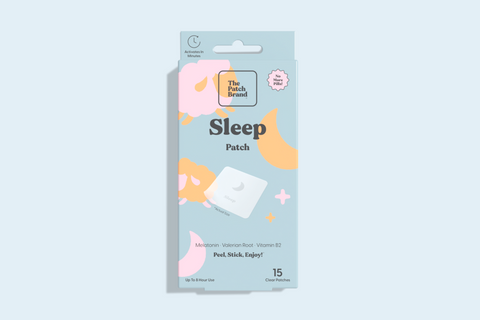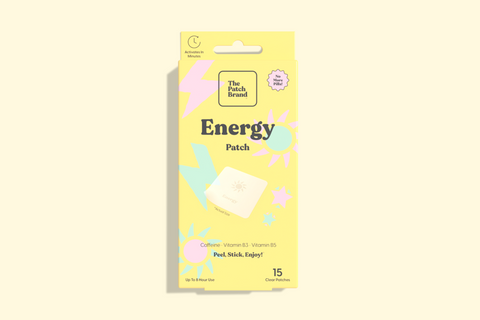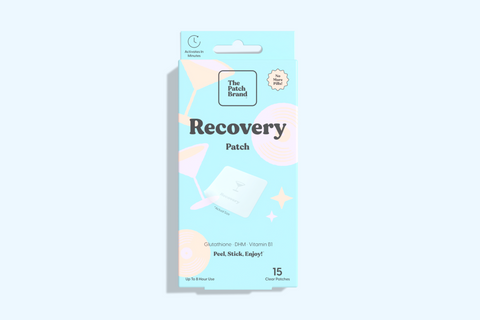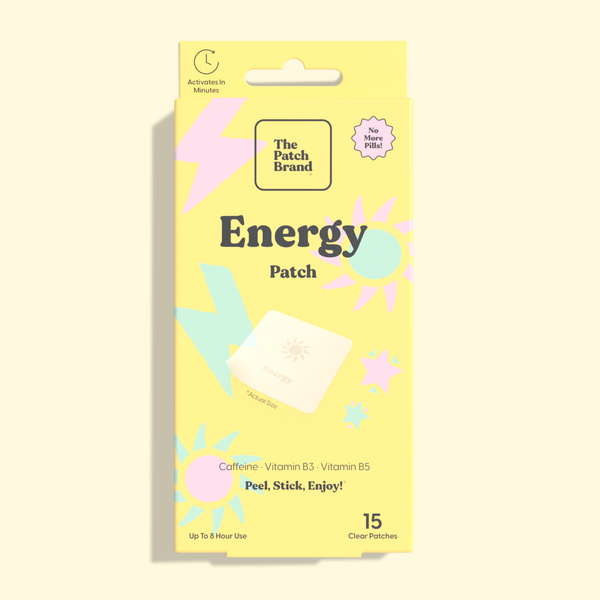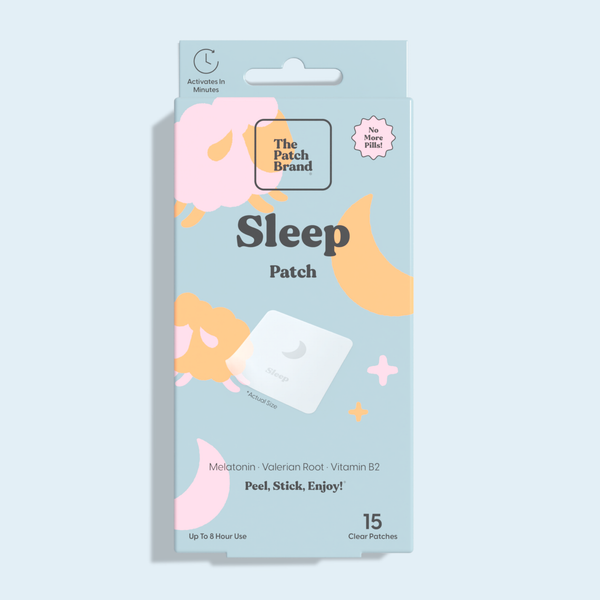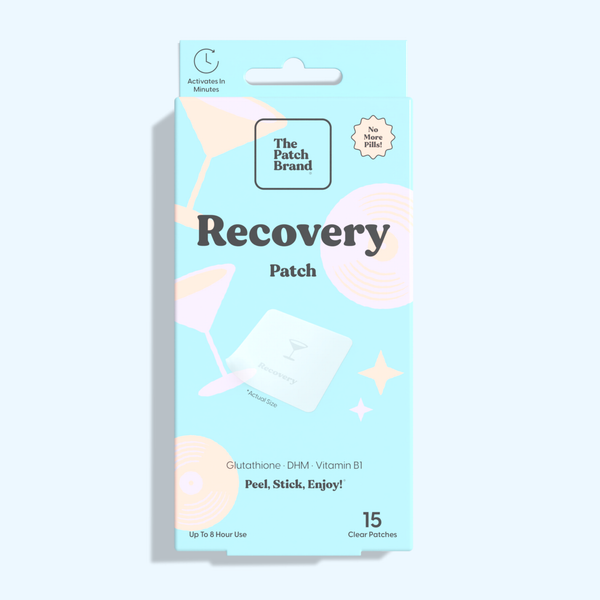Sleep quality is vital for our overall health, playing a crucial role in physical and mental recovery. Poor sleep can lead to a range of issues, from decreased cognitive function and mood disturbances to more severe health problems like heart disease and obesity. Enhancing sleep quality isn't just about increasing the number of hours spent asleep but improving the restorative nature of sleep itself. This is where magnesium for improving sleep quality comes into play, serving as a pivotal element in promoting a night of more effective, restful sleep.
Benefits of Magnesium for Sleep
Muscle Relaxation and Sleep Quality
It helps to reduce muscle tension and prevent cramps, common issues that can disrupt sleep. By allowing muscles to relax properly, magnesium can facilitate a smoother transition into deep sleep phases, making it easier to maintain sleep throughout the night. This action not only improves the overall sleep experience but also helps individuals wake up feeling more refreshed.
Stress Reduction
Magnesium has a calming effect on the body's nervous system, which is beneficial in managing stress and anxiety levels—common culprits behind sleep difficulties. By aiding in the regulation of stress hormones like cortisol, magnesium can help create a more relaxed physiological state conducive to sleep. This makes magnesium supplement for sleep particularly valuable for those who find their sleep disrupted by stress.
Mood Stabilization and Better Sleep Patterns
Mood stability isn't just about managing negative emotions; it also involves cultivating a positive mental environment, which supports healthier sleep habits. Magnesium is a key mineral that supports emotional well-being and, consequently, sleep quality by aiding the synthesis of serotonin, a crucial neurotransmitter that influences mood, appetite, and sleep. Serotonin levels that are balanced contribute to feelings of happiness and calm, creating an ideal mental state for sleep. Furthermore, serotonin is the precursor to melatonin, the hormone that regulates sleep-wake cycles. Magnesium's role is multifaceted; it not only helps convert serotonin into melatonin but also has a general calming effect on the nervous system. Regular intake of magnesium can help maintain adequate melatonin levels, thereby improving sleep patterns and promoting the benefits of magnesium for sleep in maintaining emotional balance.
How Magnesium Helps with Sleep
Interaction with GABA Receptors
Magnesium's effectiveness in promoting sleep is partly due to its interaction with gamma-aminobutyric acid (GABA) receptors, which play a key role in the central nervous system as inhibitory neurotransmitters. By enhancing GABA function, magnesium facilitates a decrease in neural activity, allowing the brain to transition into a state of relaxation necessary for sleep. This interaction is crucial for those looking at how magnesium helps with sleep, particularly in environments where external stressors and cognitive activity hinder the ability to unwind.
Preparing the Body for Sleep
Magnesium aids in the physiological winding down of the body, preparing it for sleep by influencing various bodily processes that signal it's time to rest. It helps regulate the body's internal clock and sleep-wake cycles through its role in producing melatonin, the hormone that tells our brain when it's time to sleep. This regulation is essential for individuals trying to maintain a consistent sleep schedule, making magnesium for sleep disorders an area of interest for improving overall sleep hygiene.
Enhancing Sleep Architecture
The structure of sleep, known as sleep architecture, refers to the cycle of sleep phases, including light, deep, and REM sleep. Magnesium is believed to improve sleep architecture by increasing the duration of deep sleep, which is the most restorative phase. This benefit is significant for enhancing overall health, as deep sleep supports immune function, brain health, and physical recovery. The effectiveness of magnesium for better sleep in this area highlights its potential as a critical supplement for anyone seeking to optimize their sleep patterns.
Reducing Nighttime Awakenings
Frequent awakenings during the night disrupt the sleep cycle and can prevent the deep, restorative sleep needed for optimal health. As emphasized before, magnesium's calming effect on the nervous system and its ability to maintain stable neurotransmitter levels can help minimize these interruptions.
Choosing the Right Magnesium Supplement
Different Forms of Magnesium
When considering magnesium supplements, it's important to understand the different forms available and their specific benefits. Each type of magnesium offers unique advantages tailored to various health needs. Below is a guide to help you choose the right magnesium supplement for your specific requirements:
-
Magnesium Citrate: This form of magnesium is known for its high bioavailability, meaning it is easily absorbed by the body. Magnesium citrate is often recommended for general health improvements, such as enhancing sleep quality and boosting energy levels. It works by relaxing the muscles and calming the nervous system, making it easier to fall asleep and stay asleep. Additionally, it can help alleviate mild constipation by drawing water into the intestines and promoting bowel movements. This makes magnesium citrate a versatile supplement suitable for those looking to improve their overall health.
-
Magnesium Glycinate: Particularly beneficial for those with significant stress or anxiety, magnesium glycinate has a calming effect on the brain and body. This form of magnesium is bonded with glycine, an amino acid that itself acts as a calming neurotransmitter. It's highly recommended for improving sleep quality and reducing anxiety without the laxative effect often associated with other forms. Magnesium glycinate is gentle on the stomach and is an excellent choice for individuals who need a magnesium supplement that contributes to mental calm and relaxation.
-
Magnesium Oxide: Known for its effectiveness in treating digestive issues, magnesium oxide is often used as a short-term remedy for acid reflux and constipation. While it has a lower absorption rate compared to other forms, it still offers significant benefits for digestive health. For those specifically looking to improve sleep, magnesium oxide may be less effective unless it is combined with other forms. However, its ability to neutralize stomach acid and promote bowel movements makes it a valuable option for those dealing with specific gastrointestinal symptoms.
Choosing the right magnesium supplement depends on your specific health goals and needs. Whether you're looking to improve sleep, reduce anxiety, or address digestive issues, there's a form of magnesium that can cater to your requirements.
Appropriate Dosage for Sleep Improvement
Determining the right magnesium dosage for sleep enhancement necessitates a careful consideration of various factors, including individual health status, age, gender, and specific sleep challenges. The recommended starting point typically lies between 200-400 mg of magnesium per day. It is advised to begin at the lower end of this spectrum to monitor the body’s response and to mitigate potential side effects, such as digestive issues. Incremental adjustments can then be made based on the initial outcomes. This approach helps in identifying an effective yet comfortable dosage that aligns with personal health requirements and sleep goals. Dividing the total daily dosage into multiple smaller doses can further help reduce the risk of digestive discomfort and enhance the absorption of magnesium throughout the day.
Timing and Method of Supplementation
Optimal results are generally achieved by taking magnesium in the evening, approximately 1-2 hours before going to bed. This timing helps the body to start winding down and allows magnesium to integrate into the system, therefore aiding the relaxation of the nervous system and the induction of sleep. When it comes to the method of intake, magnesium is available in various forms, including oral tablets, capsules, powders, and even topical applications like oils and creams. Each method has its absorption rate and efficiency; for instance, topical forms may be preferable for those who experience gastrointestinal issues with oral supplements.
Experimentation with different forms of magnesium can lead to discovering the most suitable and effective version for your routine, potentially enhancing the overall sleep experience. Combining magnesium intake with other relaxing nighttime rituals, such as a warm bath or reading, can further reinforce the sleep-promoting effects of magnesium.
Consulting with Healthcare Professionals
Medical experts can assess your overall health and review any existing medications to prevent adverse interactions with magnesium. This step is particularly important for individuals with complex health profiles or those on medication regimens that might affect or be affected by increased magnesium intake. Healthcare providers can also help in determining the most appropriate form and dosage of magnesium based on your specific sleep issues and nutritional needs. Their guidance ensures that the supplementation strategy not only enhances sleep quality but also aligns safely with your health objectives. Regular follow-up appointments can help in monitoring the effects of magnesium supplementation on your sleep patterns and overall well-being, allowing for adjustments in dosage or method as needed to optimize the benefits.
Magnesium for Sleep Disorders
Magnesium for Insomnia
Magnesium has been increasingly recognized for its potential to alleviate insomnia, a common sleep disorder characterized by difficulty falling and staying asleep. Its natural muscle-relaxant and nerve-calming properties can help quiet the mind and body, making it easier to drift off to sleep. For those exploring using magnesium for insomnia, integrating it into the nightly routine can be a game-changer by reducing the time it takes to fall asleep and increasing the quality of sleep obtained.
Integrating Magnesium into Nightly Routines
Each method of integration targets different aspects of sleep preparation, potentially enhancing your overall sleep experience. Here are practical tips to make the integration of magnesium into your nightly routine as effective as possible:
-
Consistent Timing: Making it a habit to take your magnesium supplement at the same time every evening can greatly enhance your body’s internal clock. This routine helps signal to your body that it’s time to wind down, making it easier to fall asleep and wake up feeling rejuvenated. Regular intake at a set time can synchronize your natural sleep-wake cycle with your daily activities.
-
Relaxation Techniques: Combining magnesium supplementation with relaxation techniques like meditation, gentle yoga, or reading can amplify the calming effects of magnesium. Engaging in these activities as part of your bedtime routine can relax both your mind and body, making it easier to fall asleep.
-
Limit Stimulants: Avoiding stimulants such as caffeine and minimizing exposure to blue light from screens before bedtime are critical for allowing magnesium to work effectively. These stimulants can interfere with the body’s ability to relax, countering the soothing effects of magnesium. By creating a pre-sleep routine that excludes these stimulants, you allow your body to engage fully with the relaxing benefits of magnesium.
-
Comfortable Environment: Creating a sleep-conducive environment involves several factors such as maintaining a comfortable room temperature, using blackout curtains to control light exposure, and minimizing noise. These elements help enhance the effects of magnesium by ensuring that external conditions do not disrupt your sleep.
-
Proper Hydration: Staying properly hydrated throughout the day plays a crucial role in maximizing the effectiveness of magnesium. Adequate hydration facilitates the efficient circulation of magnesium throughout the body, optimizing its calming and sleep-promoting properties. However, it’s advisable to moderate water intake close to bedtime to avoid sleep interruptions for bathroom trips, thus maintaining a balance that supports both hydration and uninterrupted sleep.
-
Balanced Diet: Foods like almonds, spinach, and bananas not only help increase magnesium intake but also ensure a balanced diet, which is fundamental for overall health and effective magnesium absorption. A diet rich in nutrients supports the body’s natural processes, complementing the benefits of magnesium supplements.
Each of these tips can help you integrate magnesium into your nightly routine more effectively, potentially enhancing both the quality and duration of your sleep. By considering these detailed approaches, you can tailor your pre-sleep activities to better support your health.
Alternative Methods of Using Magnesium for Sleep
Benefits of Sleep Patches
These patches administer magnesium transdermally, meaning it is absorbed through the skin. This method can be particularly beneficial for individuals who experience difficulty with oral supplements due to digestive sensitivities. By bypassing the gastrointestinal tract, transdermal delivery minimizes the risk of stomach upset and optimizes absorption. Sleep patches allow for a steady, controlled release of magnesium, which helps maintain a consistent level of the mineral in the bloodstream throughout the night. This continuous delivery is crucial in facilitating the natural relaxation processes of the body, thus aiding in achieving a deeper and more restorative sleep. Also, the ease of use of sleep patches—simply applying a patch before bedtime—adds a convenience factor that traditional supplement forms may lack, encouraging regular use.
Using Sleep Vitamin Patches
Sleep vitamin patches represent a multi-nutrient approach, combining magnesium with other elements like melatonin and vitamin B12, which are known to support sleep. The integration of these nutrients into a single patch leverages their synergistic effects to enhance sleep quality more effectively than magnesium alone. This method ensures a gradual absorption of these nutrients throughout the night, which can help maintain sleep continuity and prevent frequent awakenings. The convenience of vitamin patch for sleep is particularly appealing to those who prefer a non-invasive and effortless supplementation method.
Finding High-Quality Sleep Patches
When choosing these products, it is important to look for patches that contain clinically proven, bioavailable forms of magnesium that the body can easily absorb and utilize. Checking the product for certifications and approvals from recognized health authorities can also provide assurances of quality and safety. Reputable manufacturers will often provide transparent information about the source and purity of their ingredients, helping consumers make informed choices. It's also advisable to read user reviews and testimonials to measure the effectiveness of different brands and to ensure that the patches meet your specific sleep enhancement needs.
Magnesium has demonstrated its role as a vital mineral in enhancing sleep quality and managing sleep disorders. From its ability to calm the nervous system and relax muscles to regulating vital neurotransmitters and hormones such as GABA and melatonin, magnesium offers a multifaceted approach to improving sleep.



